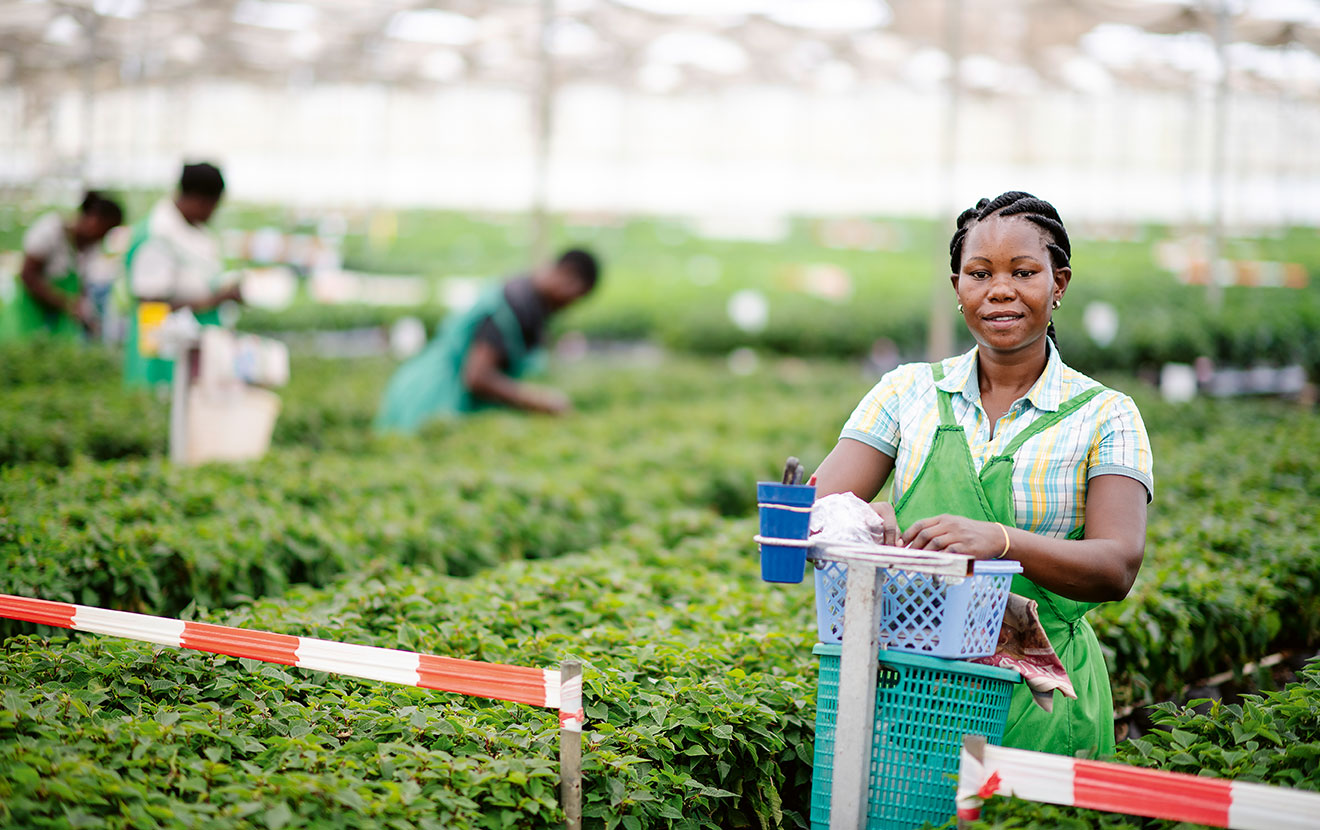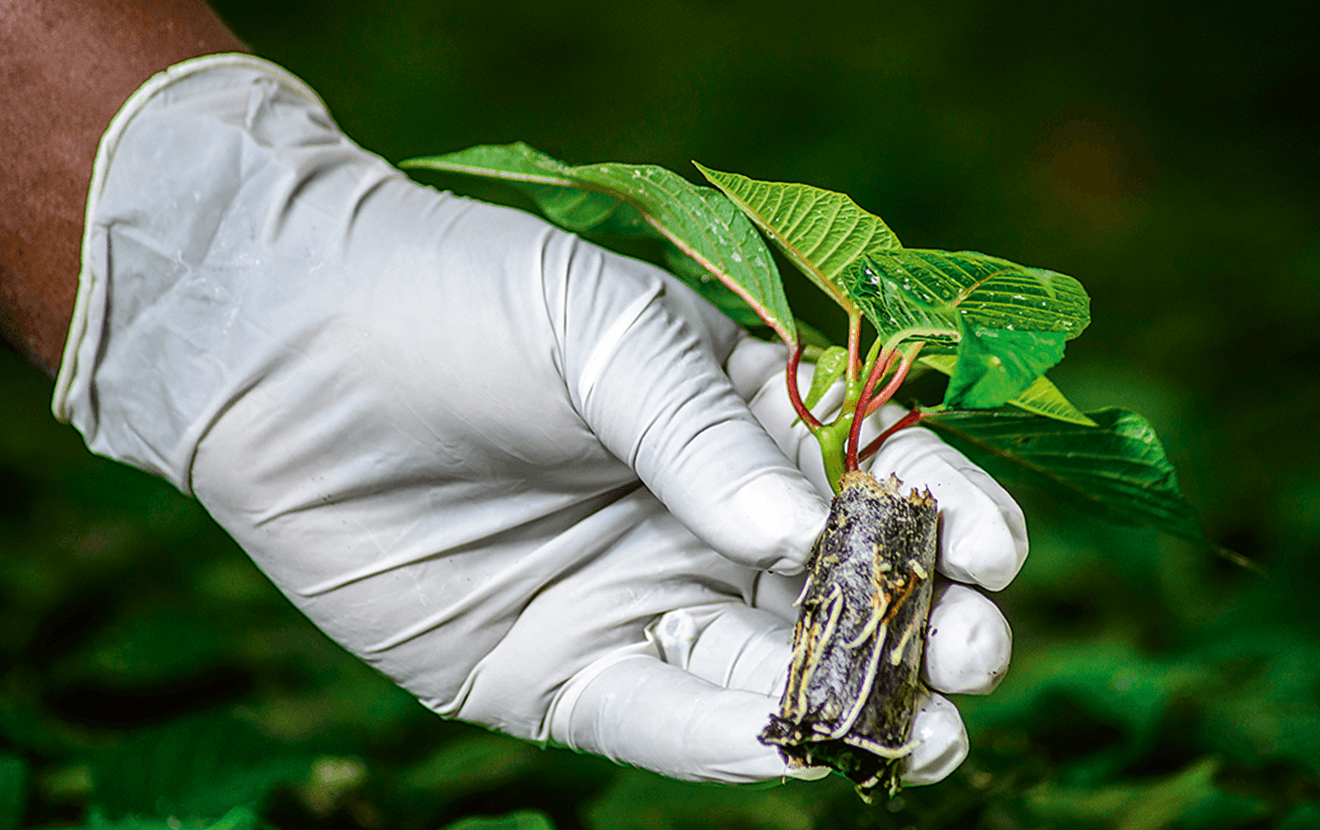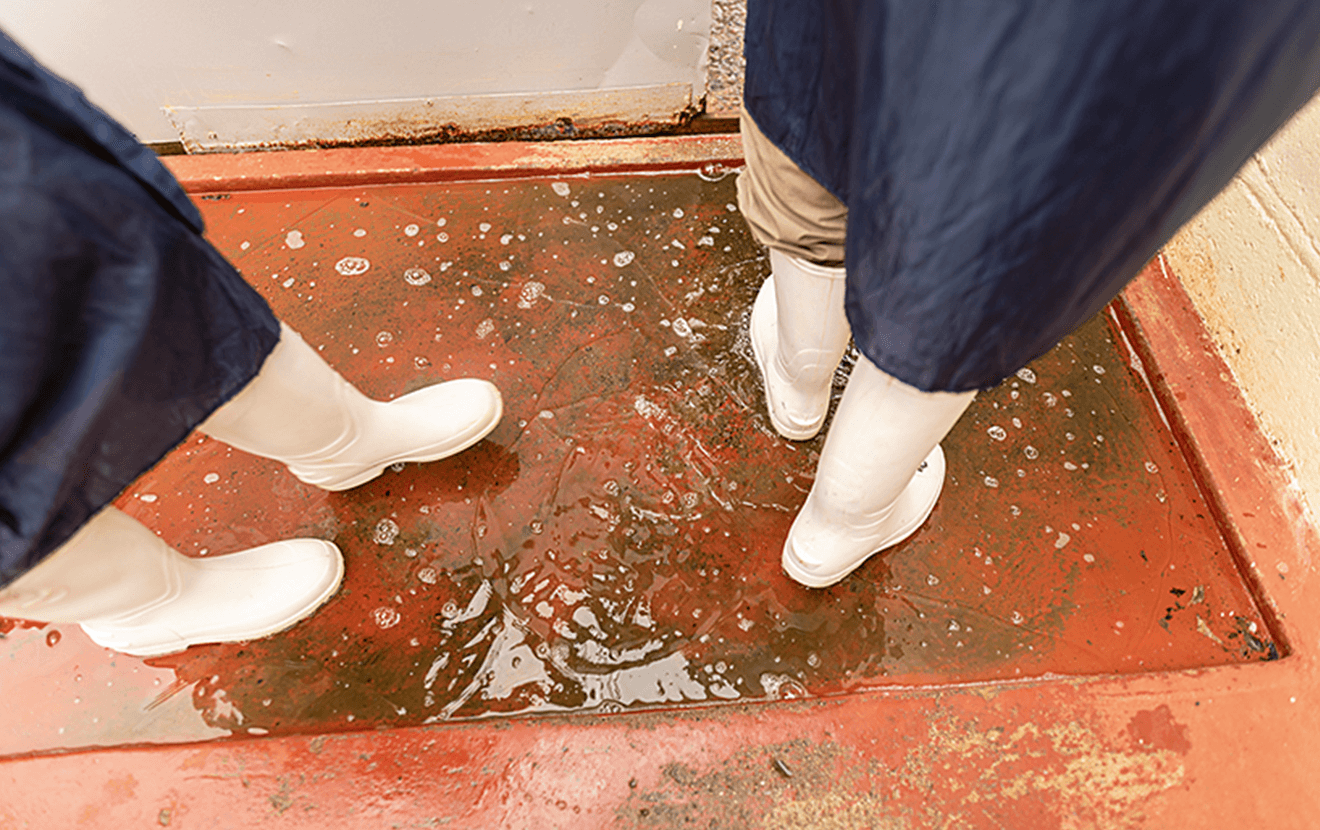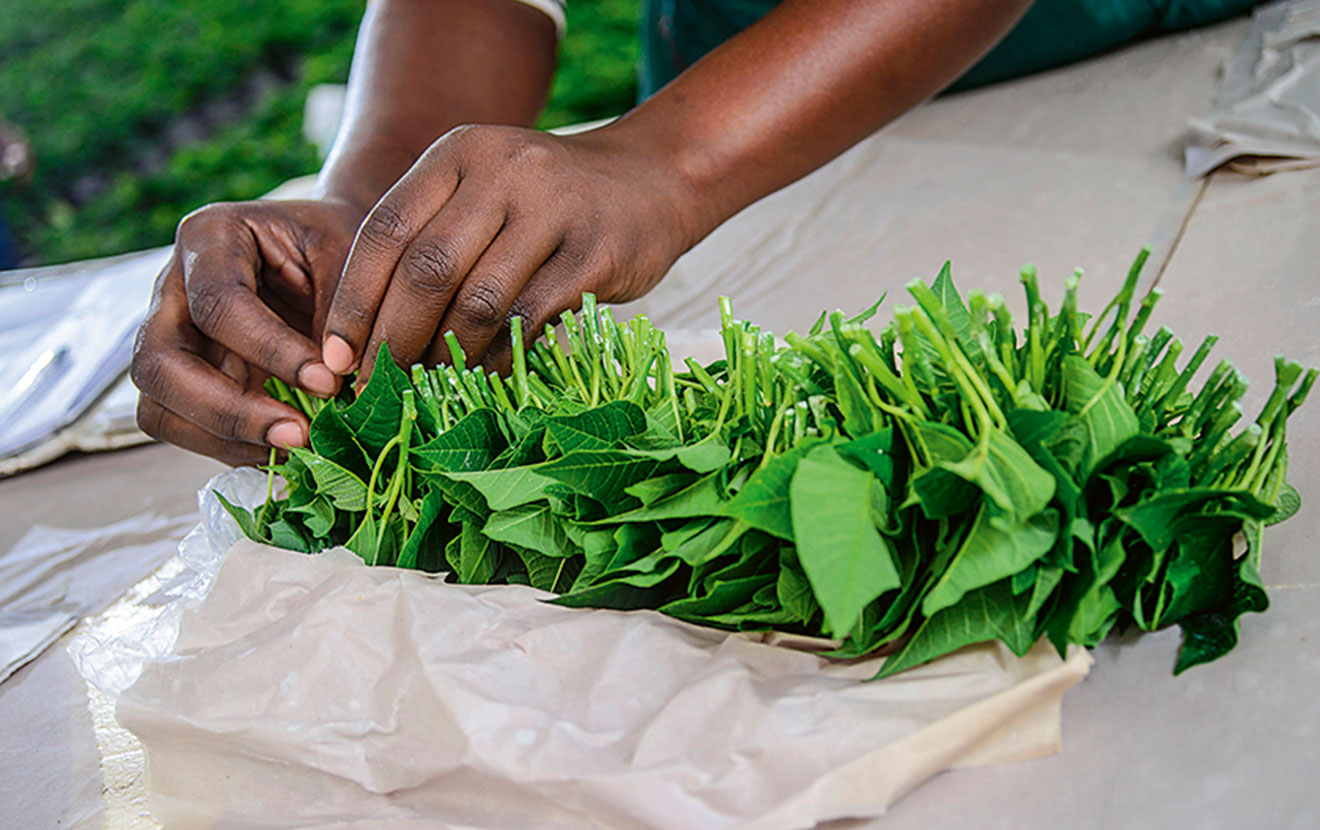
Stars from Uganda.
Flowers are a positive symbol of life. People who want to honor someone or express their affection can do so anywhere in the world by presenting them with flowers. Sometimes the gift means “I love you”, sometimes it says “Forgive me”, and sometimes the message is, “Time to celebrate!” “It could be an anniversary, a sporting success, or it could be marking an important holiday – flowers speak a language that everyone understands,” says Wilson Keter. “They bring people joy!“ This is what he likes so much about his job as Production Manager for Selecta One at the Wagagai Farm in Uganda, about an hour’s drive west of the capital, Kampala. Selecta One is one of six German and Dutch horticulture businesses that have joined forces in the “Stars for Europe” initiative with the aim of promoting poinsettias. The plant with the bright red, and in some varieties also white or beige leaves, is part of the western tradition of celebrating Christmas time, just like the Advent wreath and the Christmas tree. In the days leading up to Christmas, millions of families like to decorate their living room with this spectacular and symbolic flower. However, this has only become possible because a horticultural and logistical masterpiece has been achieved in Africa and Europe in the lead-up to Christmas.

The poinsettia business relies on an intensive division of labor that involves the shared handling of volume, cost and quality requirements, an effort that calls for a top performance from all parties involved, year after year. The plant’s cuttings are produced in Africa – in addition to the Wagagai Farm in Uganda, the members of the “Stars for Europe” initiative also operate farms in Kenya and in Ethiopia. Once they arrive in Europe, the poinsettias are grown to full size and maturity, until their colorful crown comes to full bloom.
|
Once, when Wilson Keter attended a meeting at Selecta One’s headquarters in Stuttgart, he went to a nearby flower shop. The horticulturalist from Africa was astonished when he saw the finished product with its large, splendid red leaves. “I can understand why people are happy to spend their money on these flowers. But it is a little strange for me, because we only ever get to see the green leaves of the mother plants. And of those we only take the shoots, which we cut off and then send as cuttings in the fastest way possible.” Which is by airfreight, exclusively. “Without airfreight, our farm would not exist,” says Wilson Keter. During peak season, Selecta One ships poinsettia cuttings from the Wagagai Farm to Europe six days a week, around 55 million pieces each season. The shoots are smaller than a thumb and look more like a sprig of mint than the pot plant they will grow into. Even so Selecta One in Uganda generates 31 tons of airfreight every year in this way. Right after the harvest and still in the greenhouses, the workers pack the shoots in specially insulated cardboard boxes. After a short period of intermediate storage in the cool rooms at Wagagai Farm, the sensitive plants are transported by truck to |
Entebbe airport, only 20 kilometers away, on the same day. There they are loaded into the cargo holds of an aircraft with destination Europe and kept at a temperature of between eight and twelve degrees Celsius. IMPORTANT CARRIER: BRUSSELS AIRLINESAn important carrier for Selecta One in Uganda is Brussels Airlines. Lufthansa Cargo’s cooperation partner flies to the former Ugandan capital almost daily with Airbus A330-200 aircraft. Starting in September this year, Lufthansa Cargo is taking over the marketing of the cargo capacities of the Belgian airline (see p. 42), whose numerous scheduled connections from Brussels to Central and West Africa also enhance the network of Lufthansa Cargo. “Brussels is a very convenient hub for us, because it is close to the horticultural operations in Germany, France and the Netherlands,” says Wilson Keter. Upon arrival, the cuttings are replanted by his European colleagues, and once they reach maturity they are delivered to the shops in time for Christmas. |

Extreme care and numerous work steps are required until the cuttings can finally be harvested. An important recipe for success: the highest standards of hygiene. At Wagagai the mother plants are cultivated inside a specially secured greenhouse with optimal ventilation. Only after carefully washing their hands and putting on a gown, gloves and special shoes may visitors enter the area, but they are still not permitted to touch the plants. Even in the “normal” greenhouses, strict hygiene must be observed in order to keep viruses, bacteria and harmful organisms out. “There are hundreds of diseases that could potentially infect our plants,” says Wilson Keter. But at Wagagai such problems almost never occur, because here the workers are extensively trained, and everyone observes the required standards of hygiene. Moreover, several specialists are constantly on the move in each of the greenhouses to ensure that the standards are complied with. “Diligent observation of the standards of hygiene means we can largely eliminate the use of toxic pesticides,” says Wilson Keter.

“We run an exemplary operation here and have earned the highest international environmental certificates in accordance with the MPS ECAS standard.” Poinsettias are grown at Selecta One in Uganda from May to August, inside massive greenhouses covering a total area of 20 hectares. During peak season the farm employs 1,000 workers to look after the plants, harvest the cuttings and carry out all the associated tasks. “Poinsettias are delicate plants. It is fiddly work that calls for great patience – and especially a great many experienced and careful hands,” says Wilson Keter. The low labor costs by international standards are one reason why poinsettia cuttings are produced in Africa. A second important reason is the climate: the poinsettia is a tropical plant that originally came from Mexico. Uganda offers optimal conditions for the mother plants from which the cuttings are taken. The country lies on a plateau which straddles the Equator, and it borders on the gigantic Lake Victoria, some 1,135 meters above sea level. Wagagai Farm, where poinsettias have been cultivated since 2006, is located on the shores of Lake Victoria. Conditions here are neither too hot nor too cold, and there is no shortage of fresh water for the continuous drip irrigation the plants require.
GOOD CAREER OPPORTUNITIES.
GOOD CAREER OPPORTUNITIES.
|
“Cultivating these cuttings in Africa also makes sense from an ecological point of view,” says Wilson Keter. “The CO₂ emissions that would be generated by heated greenhouses in Europe far exceed the CO₂ footprint we are currently producing by transporting the cuttings by plane.” Wilson Keter glows with pride when he talks about his work. Born and trained in Kenya, the agricultural engineer lives at Wagagai Farm together with his wife. Every morning he jogs around the farm in order to stay in shape. Wilson is good with plants, they say at the farm. And with the workers. “Not only the plants thrive here at Wagagai, the people do too!” says Wilson Keter. Uganda, with its civil war past, is considered one of the poorest countries in the world. Not only that, the farm is also located in a very rural area where there is a great deal of poverty and low levels of education. |
“The people from this area generally can’t compete with those living in the cities,” explains Wilson Keter. “It is therefore great to see how people start to develop and grow once they start work with us. They grow in stature within their families because they provide for their livelihood and for their children to be able to go to school. They gradually take on more responsibility and start to take their lives into their own hands. There are numerous examples here at Wagagai of people starting out as harvest helpers and today they work as foremen, or even in management.” The laborious enterprise is well worth it, however, not least because the resulting product is also worthwhile, concludes Wilson Keter. “At Christmas, many people give each other things in which they lose interest after just a short time. I like the fact that with the poinsettia we produce something that is alive, and that only has a single purpose: to bring joy!” |
Photos: Allan Gichigi, Andrew Kartende
